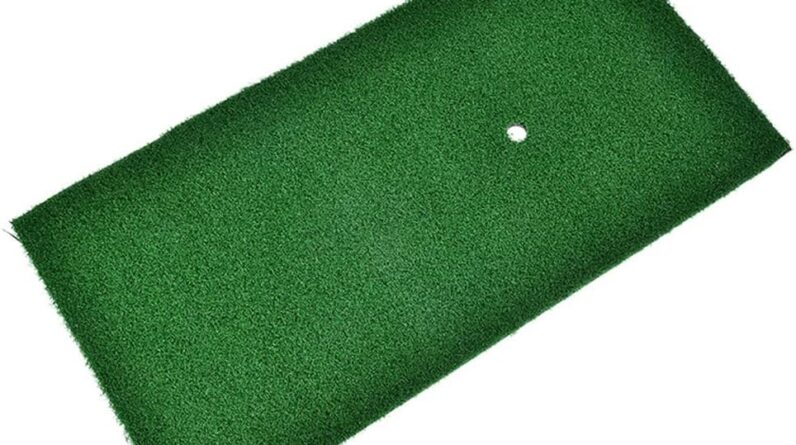Imagine this scenario: you step onto the golf course, brimming with excitement and determination. You take a confident swing, but to your dismay, the ball falls short of its intended target. Frustrating, isn’t it? Have you ever wondered what role fatigue plays in your ability to hit those desired distances? In this article, we will explore the impact of fatigue on your golf swing and how it affects your overall performance. Get ready to gain new insights and discover ways to optimize your game, even when fatigue seems to be working against you.

Understanding the Impact of Fatigue on Performance
Exploring the Relationship Between Fatigue and Physical Performance
Fatigue can have a significant impact on physical performance, including the ability to hit certain distances. When you are fatigued, your body experiences a decline in overall performance and may struggle to execute movements with the same power and precision as when you are well-rested and energized.
Examining the Effects of Fatigue on Muscular Strength
Fatigue can greatly affect muscular strength, which is a crucial component of hitting distances. When your muscles are fatigued, they may lose their ability to generate the necessary force and power needed for powerful hits. As a result, your hitting distances may be negatively impacted, and you may find it more challenging to achieve the desired results.
Analyzing the Influence of Fatigue on Muscle Coordination
Muscle coordination plays a vital role in executing successful hits. However, fatigue can disrupt the intricate coordination between different muscle groups, leading to a decrease in hitting distances. When you are fatigued, your muscles may not work together as efficiently, resulting in a lack of synchronization that can compromise your ability to generate the maximum force required for long hits.
Assessing the Impact of Fatigue on Energy Systems
Your body’s energy systems play a crucial role in providing the necessary fuel for high-intensity activities like hitting. However, fatigue can negatively impact these energy systems, depleting your body’s energy reserves and impairing your ability to maintain the required intensity. As a result, hitting distances may suffer, as your body may struggle to sustain the same level of power and explosiveness when fatigued.
Investigating the Role of Central Nervous System Fatigue
The central nervous system (CNS) plays a pivotal role in coordinating muscle contractions and transmitting signals from the brain to the muscles. Fatigue can affect the CNS by slowing down these communication pathways, leading to a decrease in hitting distances. When your CNS is fatigued, the signals from your brain may not reach your muscles with the same speed and efficiency, resulting in reduced power and accuracy in your hits.
Considering the Psychological Effects of Fatigue
Fatigue not only impacts the physical aspects of hitting distances but also the psychological factors involved. When you are fatigued, your mental focus and concentration may waver, making it more challenging to maintain the necessary technique and precision required for successful hits. Additionally, fatigue can lead to increased feelings of perceived effort and reduced motivation, which can further impact your hitting performance.
Fatigue’s Effect on Hitting Distances
Examining the Specifics of Hitting Distances
Hitting distances refer to the distance the ball travels after being struck by a player. In various sports such as baseball, golf, and tennis, hitting distances play a crucial role in success. These distances are influenced by factors such as the initial velocity of the ball, the angle of launch, and the overall power generated by the player’s swing. Therefore, any decrease in power caused by fatigue can lead to shorter hitting distances.
Analyzing the Components of a Successful Hit
A successful hit requires a combination of factors, including muscular strength, coordination, timing, and technique. Each component contributes to the overall power and accuracy of the hit. Fatigue can disrupt these components, compromising the player’s ability to execute the swing with optimal force and precision. As a result, hitting distances may be significantly reduced when fatigue sets in.
Exploring the Role of Muscular Strength in Hitting Distances
Muscular strength is a fundamental factor in hitting distances. The ability to generate sufficient power through the muscles is essential for propelling the ball over long distances. Fatigue can diminish muscular strength, leading to a lack of force in the swing and, consequently, shorter hitting distances. Strengthening and conditioning the muscles can help mitigate the negative impact of fatigue on muscular strength and, in turn, improve hitting distances.
Understanding the Influence of Muscle Coordination on Hitting Distances
Muscle coordination is crucial for executing a powerful and accurate hit. When the muscles are fatigued, the coordination between different muscle groups may become impaired, resulting in a loss of synchronization and efficiency. This lack of coordination can negatively impact hitting distances, as the swing may lack the necessary fluidity and precision to generate maximum force.
Assessing the Importance of Energy Systems in Hitting Distances
Energy systems provide the necessary fuel for high-intensity activities, such as hitting. Fatigue can deplete the body’s energy reserves, making it challenging to sustain the required intensity throughout the swing. Without sufficient energy, hitting distances may be compromised due to a decrease in explosive power and a reduced ability to generate maximum force.
Analyzing the Impact of Central Nervous System Fatigue on Hitting Distances
Central nervous system fatigue can significantly impact hitting distances. When the CNS is fatigued, the transmission of signals from the brain to the muscles can be slowed down, resulting in delayed and less efficient muscle contractions. This delay in communication can reduce the power and accuracy of the swing, leading to shorter hitting distances. Ensuring proper rest and recovery can help prevent or minimize central nervous system fatigue and preserve hitting performance.
Considering the Psychological Factors in Hitting Distances
Fatigue can also affect the psychological aspects of hitting distances. When fatigued, athletes may experience reduced mental focus, concentration, and motivation. These psychological factors are crucial for maintaining proper technique and executing the swing with precision. Consequently, fatigue-induced lapses in concentration and motivation can lead to a decline in hitting distances.

Strategies to Overcome Fatigue and Improve Hitting Distances
Implementing Effective Recovery Techniques
Incorporating effective recovery techniques is essential for combating fatigue and optimizing hitting distances. Strategies such as adequate rest, sleep, and relaxation can help rejuvenate the body and mind, allowing for better physical and mental performance. Additionally, techniques like foam rolling, stretching, and massage can help alleviate muscle soreness and restore muscle function, reducing the impact of fatigue on hitting distances.
Optimizing Training and Conditioning Programs
Optimizing training and conditioning programs is vital for building muscular strength, endurance, and power. Proper training programs should consider the specific demands of hitting distances and include exercises that target the muscles and energy systems involved. Structured and progressive training can help improve power output and delay the onset of fatigue, enabling athletes to hit longer distances.
Evaluating Nutrition and Hydration for Performance
Nutrition and hydration play crucial roles in optimizing performance and combating fatigue. Consuming a well-balanced diet that includes lean proteins, complex carbohydrates, and healthy fats can provide the necessary nutrients to support muscle recovery and energy production. Staying adequately hydrated before, during, and after physical activity is also essential for maintaining optimal performance and preventing fatigue-related declines in hitting distances.
Managing Sleep and Rest for Enhanced Performance
Adequate sleep and rest are essential for overall performance and fatigue management. Quality sleep allows for proper physiological and psychological recovery, promoting optimal muscle function, concentration, and motivation. Consistently prioritizing sleep and implementing appropriate rest and recovery periods throughout training and competition can significantly impact hitting distances by minimizing the negative effects of fatigue.

Conclusion
Fatigue can have a profound impact on the ability to hit certain distances. Understanding the relationship between fatigue and physical performance, as well as the specific effects of fatigue on hitting distances, is crucial for athletes looking to optimize their performance. By implementing strategies to overcome fatigue and enhance hitting distances, such as effective recovery techniques, optimized training programs, proper nutrition and hydration, and adequate sleep and rest, athletes can minimize the negative impact of fatigue and achieve their desired hitting distances with improved power and accuracy.






